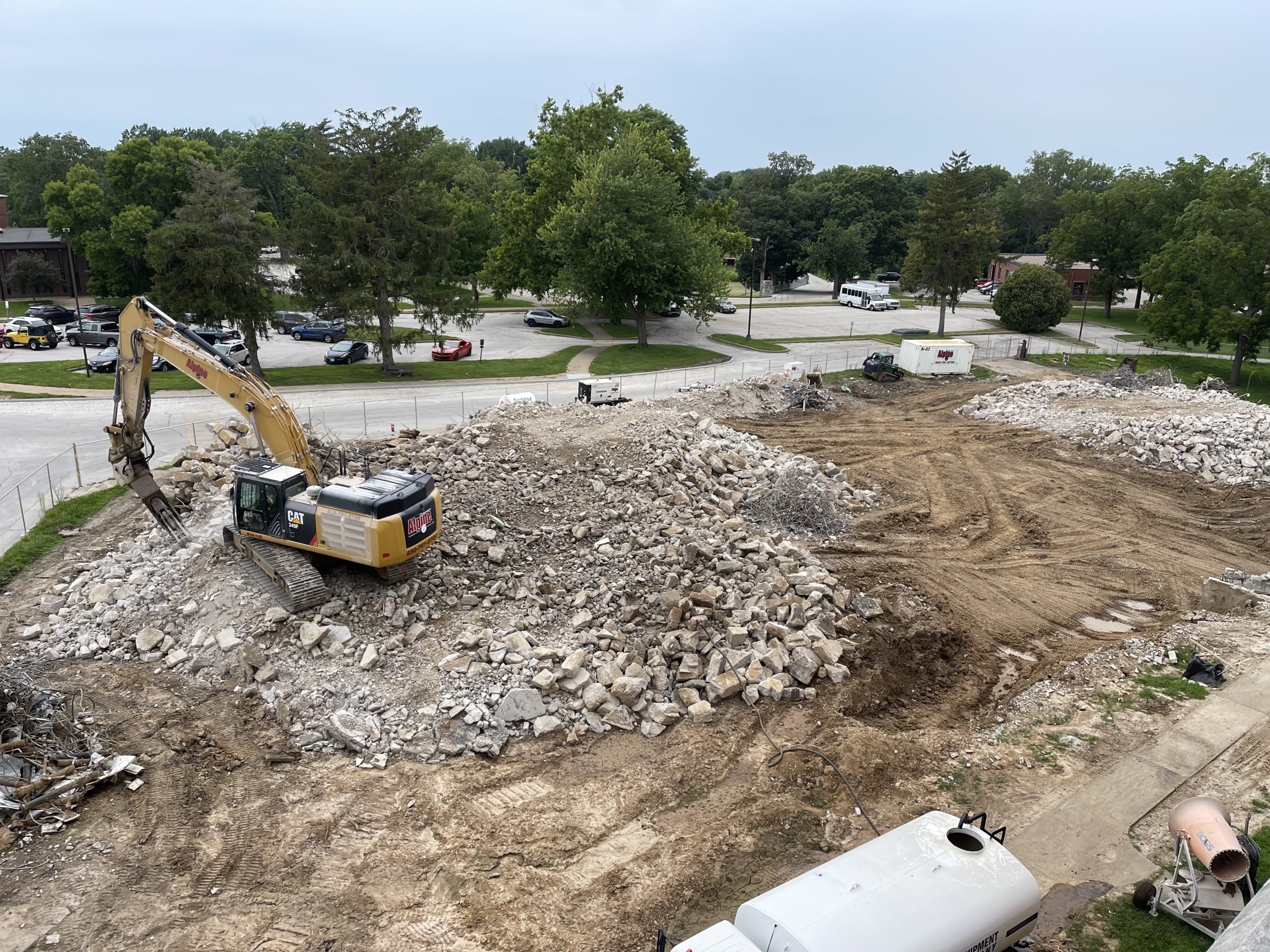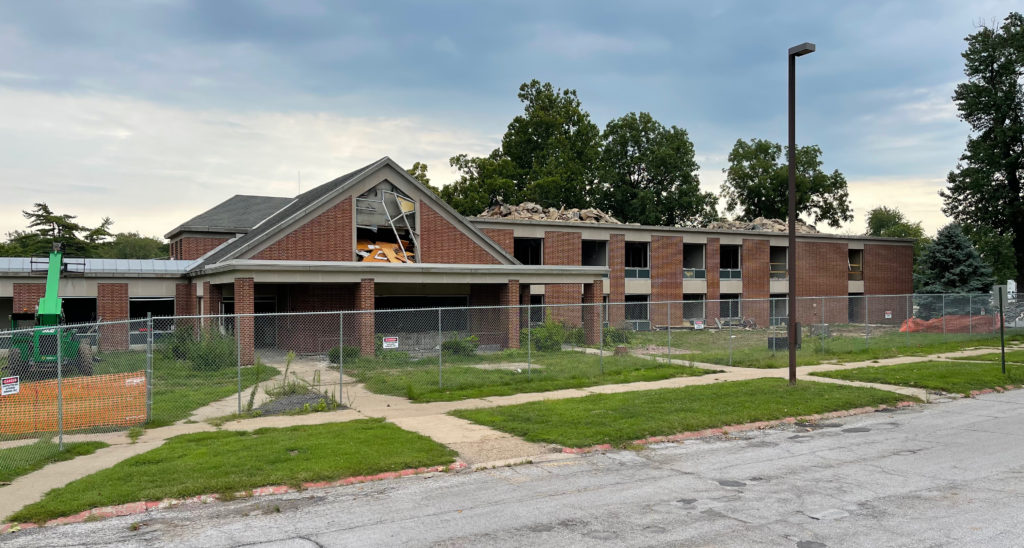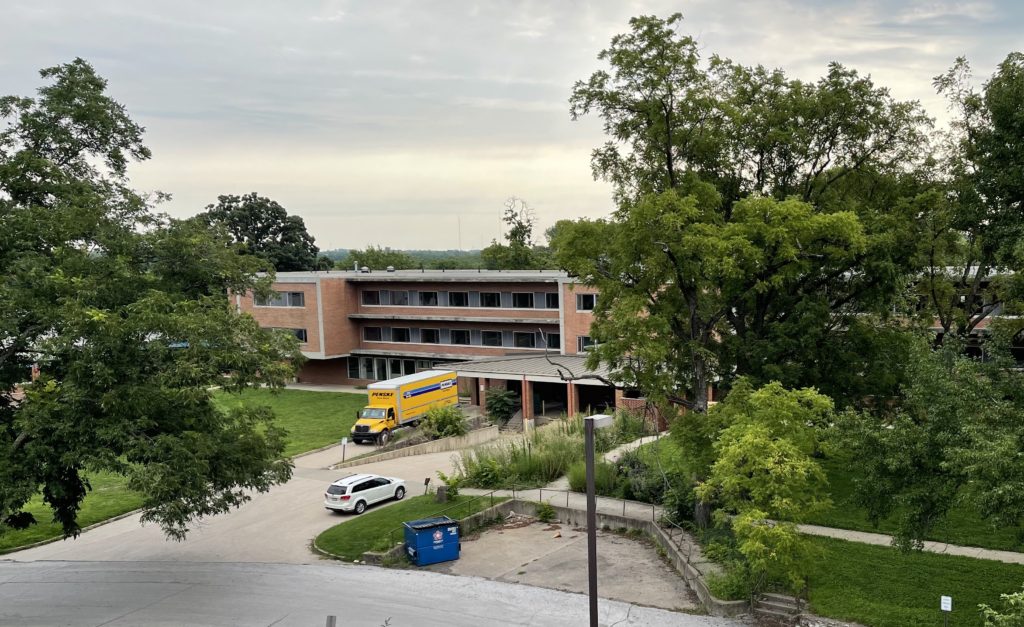Demolition continues, construction nears start at Illinois Veterans Home

QUINCY — Troy Culbertson was living in Quincy when he learned of 14 people dying and more than 50 being sickened from multiple outbreaks of Legionnaires’ disease at the Illinois Veterans Home in 2015.
Culbertson, who has worked in the long-term care business for 31 years, replaced Bruce Vaca as the administrator of the Veterans Home in August 2016.
“Everybody kept asking me, ‘Do you know what you’re getting yourself into?’” he said. “I was here during those discussions on whether we should close or not. I mean, we even had legislators calling for the closure.”
After suffering through the worst of times, the Veterans Home is ready for the best of times.
The Quincy Illinois Veterans Home Renovation and Rehabilitation Act is part of the Rebuild Illinois capital bill that was signed into law in June 2019. It calls for spending $230 million to build a state-of-the-art skilled facility with 210 beds and a domiciliary with 80 beds at the 12th and Locust campus.

Construction work at the home isn’t easily noticeable until one drives through the campus. The Rowland Barracks was demolished in Oct. 2018, and the Fletcher Infirmary was demolished earlier this summer. Elmore Infirmary is being prepped for demolition in August. The Kent Infirmary, the Guest House and a maintenance garage also will be torn down. Once construction of the new facilities are complete, the Markword Infirmary will come down. That area then will be used for green space and parking.
While demolition is expected to continue through October, plans for the new buildings are being finalized. The master building phase gathered concepts and ideas from the community and stakeholders, asking what they wanted to see built. The second phase involved taking those concepts and putting them into the structure of a building. The international architectural firm of Perkins Eastman, based out of New York, handled that.
“The structure could still change,” Culbertson said. “We haven’t put the final decision on where we’re putting light sockets, outlets and switches. Maybe we’re moving bathrooms. Things like that.”
He said 89 percent of the brick and mortar from the buildings is being pulverized and will be used to create gravel support roads throughout the facility for the heavy equipment to sit on during construction.
“That’s hundreds of tons of material that’s not going to the landfill, which was a great savings,” Culbertson said.
The third phase of the project is the design/build phase. Veterans United Constructors, a joint venture between Alberici Corp. of St. Louis and River City Contractors LLC of East Peoria, Ill., is the contractor. Work on the domiciliary is scheduled to begin in October, with completion of the facility in February/March 2023. Work on the skilled nursing facility is set to begin in November, with completion expected in January 2024.
“This is a fun process,” Culbertson said. “It has its complications being a state project, sure, but it’s still what’s best for our veterans right now. That’s what I’m in charge of — doing my best and obtaining the best for our veterans.”
Apprehension as to whether work on the Quincy facility would ever happen was understandable. The idea for a 200-bed skilled facility for veterans in Chicago that was hatched in 2008 and was recently built, but it has not yet opened.
“That’s why when this project was put into legislation, it included the process with which it had to be constructed,” Culbertson said. “When they signed this legislation, they already had Chicago on their mind. They said, ‘We can’t have this again.’ Now there is a five-year clock that has started for this project to be completed.”

Quincy’s facility will be a “small homes model” now used in all new construction projects by the Veterans Administration.
“These are literally small homes,” Culbertson said. “There’s these two wings, and we’re going to have these 15-bed households stacked on top of each other with some shared services in between — a kitchen, a pantry, some utility space.
“Right now, the different infirmaries take care of different people at different stages in their different physical care. In the new facility, they’re all going to be personal or private rooms. That model is going to potentially allow us to keep people in their same area for the rest of their life.”
Culbertson is talking with local medical providers to expand services available on campus to residents, such as psychiatry, optometry and urology. He also wants to eventually add adult day care and skilled nursing care for Medicare patients.
“We believe Quincy has a need for adult day care,” he said. “We’ve been told by the veteran service representatives for this region that we have lots of veterans staying at home who need some assistance during the day.”
Miss Clipping Out Stories to Save for Later?
Click the Purchase Story button below to order a print of this story. We will print it for you on matte photo paper to keep forever.

